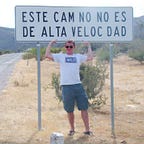The Giving Trees: Shea and Okere City
Upon first hearing of the logistically impressive and ecologically sustainable Okere City Project, it was immediately clear to myself and my colleagues at Aeroaquaponic that such an effort represented the future of global communities. Bringing a community together to share resources — most importantly the helping hands needed to build such a community — is surely the best chance humanity has to both end the destructive cycles of consumerism and regrow the natural world left in the wake of that system. A cooperative sprung out of the mutual recognition of the value of Shea trees, and from there, mutual banking and economic production abounds. In our pursuit of self-sufficiency, Aeroaquaponic has spoken with groups around the world who plan to, are in the process of, or have built self-sufficient communities (so-called “Units of Self-Sufficiency,” under our nomenclature). This past Monday, I had the pleasure and opportunity to speak with Ojok Okello, Founder of the Okere City project about the struggles and triumphs in that settlement of approximately 5,000 people in the northern tropical savannah of Uganda.
The very first thing Ojok tells me is that the temperatures in his local district regularly reach 35 °C (95 °F for those of you reading in the U.S., Cayman Islands, or Liberia). This was an admission of difficulty in the beginning stages of this new community — things had not been easy in setting up such a vibrant set of homes and businesses. Where struggle presents itself, the single most helpful move to make is to come together. Knowing that his fellow community members had been harvesting Shea trees for their superior charcoal, as well as the much higher value of these trees’ nuts (and the butter they produce), Ojok began a mission to simultaneously save the trees and rebuild the village after years of war.
“Peace, development, and progress is not just the silence of a gun,” he tells me.
This was a familiar story to me, as virtually everyone I have personally spoken with in the pursuit of understanding intentional communities and self-sufficient living describes an attempt to solve a large ecosocial issue by bringing a group of people together under the common banner of: “Save the planet — save ourselves.” When we work together to build ecology, rather than wring it dry for profit and product, we produce something much more valuable: social well-being. A healthy world is a world we can all grow comfortably within, and Ojok set his sights on building such a world, beginning in his father’s community in Uganda.
The principle problem of Shea destruction was not malice, but the villagers’ misunderstanding of the value of Shea butter (a commodity made all-the-more popular by frequent handwashing and sanitization in the era of COVID-19). Ojok took it upon himself to bring Shea butter directly from the grocery store in Kampala, a 415 km drive, to the villagers of Okere. He showed them the value of this product, and from this revelation, the Okere Shea Cooperative Society was born. Realizing that maintaining the trees brought more value than destroying them for charcoal, the members of this cooperative voted immediately to not cut down a single Shea tree more.
The Shea Cooperative is far from the only accomplishment of Ojok Okello and the Okere City Project. In the past 2 years, they have built a community school, community health center, village bank (from which numerous individual and cooperative economic endeavors have sprung), and a popular boxing club. Their electrical power is derived largely from renewable sources, and their economy is driven by resources and needs, rather than mere profit margins or the need for endless arrays of products. Having accomplished this much in such a short time — and with a global pandemic on top of everything else — we at Aeroaquaponic are, to be frank, in awe of how far the Okere City Project has come. We are attempting to replicate the successful strategies of community building everywhere, such that anyone in any place on Earth can build a planet-safe, economically viable community.
After hearing the story of Okere City, it was clear that its success came from a series of partnerships. First, between Ojok and the people of his father’s land, whose knowledge and resources initiated this journey. Second, between the people of the nearby villages, whose labor and vision made such a community possible. And third, a partnership between the people and their immediate environment — in the form of Shea trees. By bringing these different groups together in harmony, the partnerships created have dispelled the concept that a resource-based economy is unable to produce wealth and abundance without destroying the natural world. The principle lesson we derived from speaking with the Founder of such a remarkable community is this: only when the boundaries which separate people from nature and people from one another are eliminated will we reach true self-sufficiency. We thank Ojok Okello for speaking with us, and look forward to working together in the future in the mutual pursuit of natural, social, and economic harmony.
